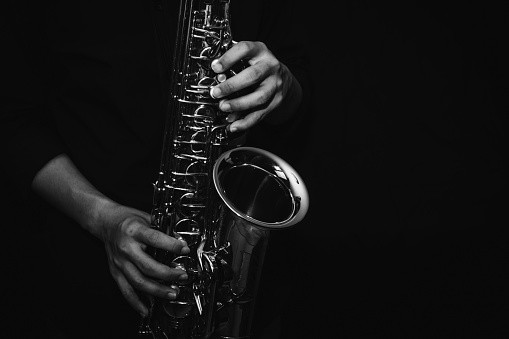
Maria Elena Rios has conflicting sentiments regarding her saxophone: she once attributed the instrument's ability to save her life while also being the cause of her near-death experience.
Rios, 29, believed that her dedication to her saxophone and profession as a musician convinced her ex-boyfriend, a powerful politician, to pay the guys who sprayed acid on her face and body permanently disfigured her.
She later discovered that he was unable to accept her ending their relationship.
Rios had to come to terms with her instrument even if some of the attackers and the ex-boyfriend were in jail. In the end, her passion for the saxophone is aiding in her psychological recovery from the terrible incident.
#México: una iniciativa de ley busca poner fin a la impunidad por los ataques con ácido o químicos en el país
— DW Español (@dw_espanol) February 20, 2023
La "Ley Malena" ha recibido un impulso con la historia de la saxofonista María Elena Ríos, víctima de un ataque con ácido contra su rostro y cuerpo en 2019. (poc) pic.twitter.com/YH7hhd8ZiS
"We are reconciling, little by little," Ríos said of the musical instrument.
She added, "I hated it, because I thought it was responsible" for the 2019 attack in Mexico's southern state of Oaxaca.
She's performed live since then but continues to cover her lower face with a mask.
"It bothered my attacker a lot that I was a musician," Ríos recounts, "because he said we musicians were vagrants, poverty-stricken, that we just took drugs and that when I went to concerts, I probably participated in orgies," reports ABC News.
Three individuals, including the former politician who is accused of ordering the attack, are being detained in custody while they await trial, but another remains at large.
In the meantime, Rios has used the saxophone as her "sword" in the fight for victims' rights and joined a movement pushing for harsher penalties for acid assaults.
The majority of acid assaults occur in South Asia, while they have also been reported in many other regions of the world, including Latin America.
Legislators in Mexico City have introduced a bill called "Malena," which would categorize acid attacks as a different, serious felony comparable to attempted femicide. Currently, they are handled similarly to ordinary assault or physical harm.
According to the Carmen Sánchez Foundation, which was founded in 2021 to raise awareness of the problem in Mexico, government health data from 2022 indicate that more than 100 women may have been attacked by chemicals or another corrosive agent, though only 28 of these incidents were reported to the authorities.
When Rios was nine years old, Rios recalls having to decide between playing soccer and joining one of the musical bands that are a popular community activity in the rural villages in Oaxaca.
"I am not her anymore. I am not the beautiful young woman who played the saxophone anymore," said Ríos. "Today I can say I have been forced to become a defender of my own rights, and a defender of the rights of other fellow women survivors."
After the incident, she spent five months in the hospital, and she vividly remembers the grief in her parents' eyes when she first opened her eyes.
She is currently enrolled in music lessons in Mexico City, where she has sought safety since the tragedy. The federal government has provided her with bodyguards because her attacker was wealthy and influential.
Rios claimed that when she attempted to end the connection, she and her family were harassed before the attack. She claims that the harassment is continuing and that she constantly fears for her safety.
Juan Manuel Vera Carrizal, a local legislator and businessman, is suspected of orchestrating the attack. His attorneys dispute any connection, and he has declared himself innocent.
Rios asserts that he still wields influence despite having been imprisoned and removed from his political party in 2020.
Although a judge attempted to categorize the crime by applying the guidelines for a lesser charge, he was almost freed to house arrest in Jan. Yet the attempt was unsuccessful since her case has drawn widespread attention.
#EnPortada María Elena Rios y las voces que se han unido a la lucha de la saxofonista https://t.co/crTyADN6cC pic.twitter.com/u6jX5Zlp4d
— El Universal (@El_Universal_Mx) February 11, 2023
"When I begin to assemble my saxophone, I feel like I am putting myself together," Rios says. Music is now a refuge for her.
After the attack, she received an invitation to perform on stage for the first-time last year. It was at the annual Vive Latino music festival in Mexico City with the rock group Maldita Vecindad. She claims it gave her an "eternal" feeling.
© 2025 Latin Times. All rights reserved. Do not reproduce without permission.



